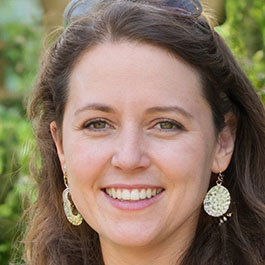Margaret Warren

I am Margaret Warren, an assistant professor of psychology and a clinical psychologist who lives in Sterling Heights, Michigan. I teach psychology classes at the state university, where I also have my private practice. My students and friends have described me as an astute scholar and researcher, an easy-going and friendly person.
My hobbies include playing chess, blogging, meeting new people, cooking, and going hiking. My chess mates fondly describe me as someone who can read people's minds and easily find a way out of apparently difficult situations.
My interest in psychology started while growing up. I saw a lot of suffering and people going through hardship without receiving the help they need. This has had a profound impact on their health and mental wellbeing in the long run. All I just wanted to do is help. So, for me, my work is all about helping as many people as I can. Hence, my focus is on Clinical Psychology.
Professional Practice, Experience and Interests
I got my degrees from Michigan State University, where I also happen to lecture. However, my practice isn't restricted to my geographical location, thanks to the rise in e-technology. I have been able to practice online and offline, guiding and helping people understand their sexual orientation.
Significantly, my popularity online came when I took to blog writing on major issues bordering on sexuality. Fortunately, my pieces received so much engagement, with lots of emails asking for help or guidance. In my course of practice, which has spanned over a decade, I have gathered a lot of experience. However, my primary area of research interests remains: gender; sexuality; sexual consent; masculinities, social constructionism; socialization; qualitative research.
My research involves exploring positive and negative consensual sexual experiences of young adults and seeking improvements that can be made to sexual health education and related policy. I am also interested in using technology to improve social science research methods and evidence-based interventions that promote functioning and wellbeing.
The goal is to contribute to knowledge and data available and help people understand how and why individuals consent to sex. I focused on these areas to bring more awareness to issues surrounding sexual differences, orientation, rejections, and rape.
In recent times, I have been dedicated to using my platform to rightly inform my audience. The end goal is to help people become more sexually aware and become better sexual beings.












































